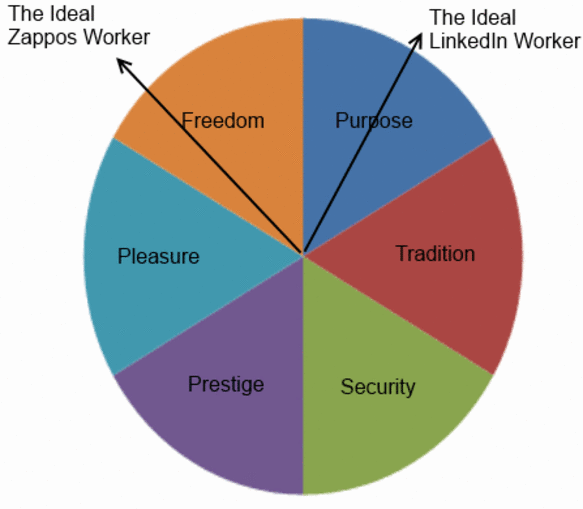Marketers are most effective when they are successful at aligning a product, brand, and/or message with consumers’ inner most values. Values are the driving force behind what people feel, think, believe, desire, consume, experience, and share. These characteristics go deeper than the demographic segmentation that marketers have been doing for ages. Researchers at Zenzi’s Social Values Project have worked to collect unique insights relating to people’s individual social values and how it relates to their buying behavior and preferences. After extensive research and testing, the team has classified six distinct orientations of values across which most people are distributed.
Viewing entries tagged
values
Human beings are storytelling animals. A key communications strategy for the post-modern world is learning to tell a company story that resonates with one’s clients deeper motivations. How can research on values help you do that? One of the central tenets of the research we do is that values are not monolithic. Different people value different things and these values predict the kinds of stories that one enjoys. People who value Power, Achievement, Spirituality, Tradition, Conformity, and Security seem to prefer stories that are closer to them, which they can relate to. In contrast, individuals who value Universalism, Self-Direction, Stiumulation, and Hedonism report a greater preference for stories that provide more of an escape from their everyday existence.
Just as the internet and information technology has made matching in other domains (e.g. classified ads or home buying) more efficient, values based matching in the labor market is bound to be a problem tackled by data science teams at online companies in the near future.
Zenzi’s Social Values Project seeks to identify key markers of consumer values in order to allow brands to communicate with their customers on a deeper, value-based level. Two of the value-driven motivational types the project has uncovered are Prestige Seekers and Pleasure Seekers. While these two types are similar, there are also key differences that could significantly impact the effectiveness of messaging targeted to these consumers. First let’s look at a description of both:
While it is certainly preferable to explicitly collect data on values from your customers, that may not always be feasible. However, you may already have data that helps you understand your customer’s values. Data on social interactions, openness to new experiences, and location can give you hypotheses that you can test more rigorously in your marketing and communications campaigns.





